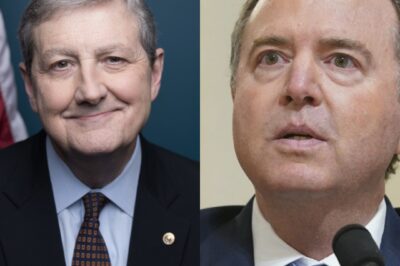Amy Coney Barrett Takes Issue With Clarence Thomas’ Supreme Court Move

U.S. Supreme Court Justice Amy Coney Barrett took issue this week with Justice Clarence Thomas.
The nondelegation doctrine, which forbids Congress from transferring its primary legislative authority to federal agencies or other nonelected officials, is something that conservatives are eager to see revived, Newsweek noted.
Barrett, a Trump nominee, voiced serious concerns on March 27 about bringing back the doctrine, which hasn’t been applied since the 1930s and could significantly reduce the authority of government agencies.
It also contributes to a larger story about Barrett’s role on the court, as she avoids Thomas’s strict conservatism and instead takes a moderate stance on a number of social issues.
The Supreme Court had to decide whether an FCC fund that requires communications companies to pay for phone lines and internet cable to be installed in rural and economically disadvantaged areas is legal. The case, Federal Communications Commission v. Consumers’ Research, was heard on March 26.
A large portion of that additional expense is then passed on to the customer by the communications companies.
In a broader sense, Justice Thomas proposed that the FCC or other government organizations could be limited in their ability to raise money through taxes by applying the non-delegation doctrine.
Barrett retorted that imposing a cap would not work. “$3 trillion or $5 trillion, that’s just kind of throwing a number out there for the sake of throwing a number,” she continued.
Additionally, she had some pointed questions for Trent McCotter, the attorney for Consumers’ Research, a conservative organization that, according to its website, advocates for tax cuts and the abolition of “woke” politics.
When McCotter told the court, “At its heart this case is about taxation without representation,” Barrett countered, “That seems a little bit hollow. That seems like a meaningless exercise.”
In Supreme Court cases, Barrett and Thomas have frequently disagreed.
During oral arguments in United States v. Rahimi, a case that will determine whether or not those covered by a domestic violence civil restraining order have the right to own a gun, Barrett made it clear that she strongly disagreed with Thomas’s analysis.
Thomas questioned Rahimi’s attorney during oral arguments in June 2024 about why a criminal defendant ought to be covered by a civil remedy such as a restraining order.
A copy of the restraining order, which prohibits Rahimi from approaching his now-ex-girlfriend or her daughter, was immediately produced by Barrett.
She then went over Rahimi’s alleged offenses against his ex-girlfriend, which included intimidation and threats, as listed in the restraining order.
Barrett was expressing her disagreement with Thomas’s rigid constructionist interpretation of the Second Amendment by doing this. According to Thomas’s school of thought, readers should only consider the Constitution’s language, which states that American citizens’ right to bear arms is unaffected.
When Congress established the FCC in 1934, one of its main objectives was to “make available, so far as possible, to all the people of the United States, a rapid, efficient, nationwide, and worldwide wire and radio communication service with adequate facilities at reasonable charges.” This was stated by Elizabeth Prelogar, the then-Solicitor General, in her petition to the Supreme Court to hear the FCC case.
According to her, the FCC fund for underserved communities is contributing to the realization of universal communications.
In a statement issued on March 26, the law firm Boyden Gray, which represents Consumers’ Research, claimed that the FCC’s fund “has been riddled with fraud—millions misused on luxury condos, private jets, and club memberships.”
Even worse, despite spending billions, the Government Accountability Office discovered no quantifiable growth in [phone and internet] service.
Before issuing a written opinion, the Supreme Court will consider the case for several months. The court’s decision is probably not going to be made public until late 2024 or early 2025.
News
“’YOU’RE NOT TELLING THE TRUTH, YOU’RE JUST SPREADING LIES!’—TYRUS DESTROYS THE VIEW HOSTS IN SHOCKING LIVE CONFRONTATION!” In an unforgettable on-air explosion, Tyrus unleashed a savage takedown on The View hosts, boldly declaring, “You’re not telling the truth, you’re just spreading lies!” His voice seethed with intensity as he fired back, “Why is it that every opposing viewpoint is dismissed, while the left rewrites history to suit their narrative?” The room went silent, and the audience erupted in support as the heated clash took over the airwaves. What sparked this brutal confrontation, and how did it shift the entire energy of the show? Watch this jaw-dropping moment unfold below
In one of the most explosive moments in recent television history, Tyrus, the outspoken co-host of Gutfeld!, took down The View in a…
LIVE SHOW SH0CKER: “You know, Jasmine… I’ve been Black for 87 years. If racism was my full-time job, I’d have retired a billionaire by now.” Jasmine Crockett Just Got PUBLICLY EDUCATED BY Morgan Freeman During a Live Debate About Racism — What Happened Next Shocked the Audience In a live debate that no one saw coming, legendary actor Morgan Freeman took the stage and went head-to-head with Jasmine Crockett with a powerful message about accountability, victimhood, and what real progress looks like. His calm but firm words left Crockett visibly flustered — but it was what happened after the cameras rolled that truly shocked the audience. What did Freeman say that instantly changed the tone of the entire conversation… and why are people all over the country still talking about it?
It was supposed to be a routine televised panel—one of those prime-time, high-minded discussions on race in America. But no…
‘ENOUGH ALREADY, ARNOLD!’— Whoopi Goldberg and Sunny Hostin BRING DOWN Schwarzenegger live on The View after his remarks on “ILLEGAL” immigrants!
Actor and former California Governor Arnold Schwarzenegger opened up about being a “proud American and proud immigrant” during a recent…
‘BLACK PEOPLE LIVING IN AMERICA HAVE IT JUST AS BAD AS PEOPLE LIVING IN IRAN’ — Whoopi Goldberg STUNS The View With Iran Comparison That Leaves Panel in CHAOS!
The View broke out into chaos during this morning’s broadcast, with Alyssa Farah Griffin and Whoopi Goldberg clashing over the…
EXCLUSIVE John Kennedy Called ‘a Thug’ by Adam Schiff – Seconds Later, He Makes His Regret It
On a day that began like any other in the marble corridors of the United States Senate, a storm was…
‘IS THIS THE END FOR SCHIFF?’ Adam Schiff Suffers HUMILIATING DEFEAT After Military Parade Hands Trump MAJOR WIN
In the swirling heart of the American capital, where every whispered rumor can ignite a political wildfire, the Senate Armed…
End of content
No more pages to load












